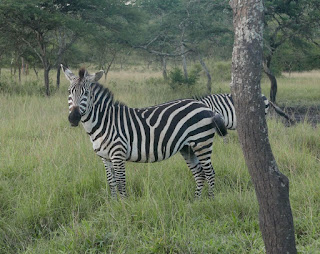
‘My child is so happy – we have a seen a change since the Playscheme. He was helpless to the point where we had no hope, he used to just lie down and be sick. Now he plays with other children.’
‘Having our children in a Playscheme means our time to work has increased. We can chop more wood, if we sell at market, we can sell much, we have more time to work in the garden and crops will be better. When we are out, we are confident that our children are safe. I used to tie my child inside the house with a rope because I was afraid to leave him. No CWD here has ever been to school. The Playscheme meets in a schoolroom. At social gatherings now I can be proud and say my child is at school.’
‘At home no-one associates with my child, only the mother cares for a CWD. If I go to shop, to the well, to the market, when I come home my child will be left in the hot sun. No-one would move my child into the shade. I wish the Playscheme could be every day.

The scheme has plenty of challenges. Remember those impossible hills in Rukungiri? Here it is miles and miles of ‘footing’ across the plain and through the bush in the hot sun. There were no walking aids in evidence, just one wheelchair loaned from the Ark. Children who can’t walk are carried on their mother’s back. One grandmother described how hard it is to carry a heavy child, but if you tell them they can’t go to the Playscheme, they are quite upset. Some families have a bicycle, one boy’s brother brings him to and from the school.

We had to explain to the families that this is a pilot project. Ongoing funding can't be guaranteed – if they want it to work there’ll need to be a plan for self-sustainability. Days like today are a mixture of joyful delight, measured optimism and anxiety. This is such a brilliant idea – but it needs funding to work. The Playworkers are unpaid volunteers. The school isn’t asking for rent. But… food costs money and at the minute there are very few toys, games or learning materials. So far there’s been no discussion about walking aids or medical support. Without outside donors, partners and supporters these children will be back in the sun, tied up, not talking, being fed…… or roaming around the area being stoned and beaten.
















